This is the November 2024 edition of our monthly series of Ethics case studies titled What Do You Think? This series is comprised of case studies from NSPE archives, involving both real and hypothetical matters submitted by engineers, public officials, and members of the public.
Your peers and the NSPE Board of Ethical Review have reviewed the facts of the case as shown below. And, here are the results.
Your opinion has been registered for the November 2024 edition of our monthly series of Ethics case studies titled What Do You Think?
Your vote is recorded as:

Want to know how your peers voted? We’ll send you an email with the poll results on
November 26.
Your opinion has been registered for the November 2024 edition of our monthly series of Ethics case studies titled What Do You Think?
Your vote is recorded as:

Want to know how your peers voted? We’ll send you an email with the poll results on
November 26.
A Review of the Facts
In the early stages of a project, Engineer Mike, a geophysical engineer, was retained by a construction contractor to make field compaction tests in connection with work to be performed for the city of Downstream. The job specifications stated that the contractor would be responsible for retaining the geophysical engineer with the approval of the city engineer. The frequency of the testing would be determined by the city engineer.
During the course of the work, the contractor ran into financial difficulty, alleging that there was excessive testing and that the soil borings did not represent actual conditions, and asked the city for additional funds. Two years later, long after Mike’s services were completed, the city brought an arbitration action against the contractor. Mike was requested by the city to assist the city in developing a claim against the contractor. Mike agrees and provides claim review and analysis services for the city.
What Do You Think?
Was it unethical for Mike to provide claim services to the city?
Here is the result of our survey of your peers:
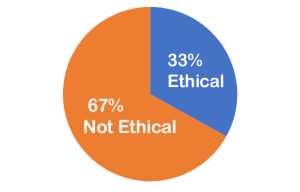
Applicable NSPE Code References:
I.3
Engineers, in the fulfillment of their professional duties, shall issue public statements only in an objective and truthful manner.II.3.a
Engineers shall be objective and truthful in professional reports, statements, or testimony. They shall include all relevant and pertinent information in such reports, statements, or testimony, which should bear the date indicating when it was current.II.3.c
Engineers shall issue no statements, criticisms, or arguments on technical matters that are inspired or paid for by interested parties, unless they have prefaced their comments by explicitly identifying the interested parties on whose behalf they are speaking, and by revealing the existence of any interest the engineers may have in the matters.II.4.a
Engineers shall disclose all known or potential conflicts of interest that could influence or appear to influence their judgment or the quality of their services.III.4.b
Engineers shall not, without the consent of all interested parties, participate in or represent an adversary interest in connection with a specific project or proceeding in which the engineer has gained particular specialized knowledge on behalf of a former client or employer.
Discussion
Engineers are an integral part of the design and construction process. In their role as technical professionals, they are frequently called upon to make important judgments concerning the adequacy and the sufficiency of the work being performed by other parties during the design and construction of various facilities. Because of the multitude of parties involved in the design and construction process, engineers often find themselves attempting to “sort out” the many controversies and differences that occur.
As technical experts, engineers attempt to provide the most accurate and truthful information available in order to best serve the public interest. This approach is consistent with Code I.3 requiring engineers to issue public statements only in an objective and truthful manner. While the importance of this Fundamental Canon cannot be overstated, as with all provisions of the Code, it must be read in the context of the entire Code. As we have noted on numerous occasions, the Code of Ethics should not be viewed as an absolute, but rather, should be read as a series of interwoven concepts that must be balanced among one another.
One of the basic ethical dilemmas contained in the Code relates to the duty to be objective and truthful and the obligation to protect the privileged and confidential information of a client. This situation frequently arises when an engineer is called upon to provide testimony as an expert witness or in some other capacity for a party who has an interest that is in conflict with that of the engineer’s present or former client. Obviously, in circumstances where the engineer is providing testimony under oath, the engineer has an ethical and legal obligation to provide honest, truthful, and complete testimony to the best of the engineer’s ability. To do otherwise would be to act in violation of both the Code of Ethics and the laws that govern our common law system.
Nevertheless, the fact that an engineer is requested to participate in some capacity in connection with a legal or arbitration proceeding does not necessarily require the engineer to either (1) agree to become involved in that legal proceeding, or (2) divulge factual information which may bear upon the interests of a present or former client.
These two actions are extremely difficult to distinguish and for that reason, both the Code of Ethics (Code III.4.b.) and this Board (Cases 76-3, 82-6) have taken them together and determined that it would not be appropriate for an engineer, without the consent of all interested parties, to participate in or represent an adversary interest in connection with a specific project or proceeding in which the engineer has gained particular knowledge on behalf of a former client or employee.
Although both earlier cases interpreted the language contained in Code III.4.b. under circumstances in which the engineer was providing direct testimony in court or statements before a governmental entity, we believe the intent of Code III.4.b. is to cover the broad array of circumstances in which an engineer is called upon to provide assistance to another party whose interests are adverse to those of a present or former client of the engineer. In fact, we believe that the assistance and services provided in the instant case, that of “claims review and analysis” may raise more sinister issues, because, unlike testimony in open court or at a public hearing, the assistance offered by Mike in an arbitration proceeding is not subject to the rules of civil procedure and evidence.
It is occasionally stated that ethical obligations undergo changes with the passage of time and circumstances. In this connection, there may be some question under the facts whether a sufficient time had passed and therefore the level of ethical obligation owed by geophysical Mike to the contractor was not of a high nature. While we recognize that under certain circumstances the ethical commitment of the engineer to a former client or a former employer may change, we do not believe under the facts presented in this case that either sufficient amount of time has passed or that the circumstances have been altered to dilute the ethical obligations owed by Mike to his former client, the contractor.
The Ethical Review Board’s Conclusion

It was unethical for Mike to agree to perform claims review and analysis services for the city.
BOARD OF ETHICAL REVIEW
Eugene N. Bechamps, P.E., John F. X. Browne, P.E., Herbert G. Koogle, P.E., Lindley Manning, P.E., Paul E. Pritzker, P.E., Harrison Streeter, P.E., Robert J. Haefeli. P.E.
Note – In regard to the question of application of the Code to corporations vis-a-vis real persons, business form or type should not negate nor influence conformance of individuals to the Code. The Code deals with professional services, which services must be performed by real persons. Real persons in turn establish and implement policies within business structures. The Code is clearly written to apply to the Engineer and it is incumbent on a member of NSPE to endeavor to live up to its provisions. This applies to all pertinent sections of the Code. This opinion is based on data submitted to the Board of Ethical Review and does not necessarily represent all of the pertinent facts when applied to a specific case. This opinion is for educational purposes only and should not be construed as expressing any opinion on the ethics of specific individuals. This opinion may be reprinted without further permission, provided that this statement is included before or after the text of the case.


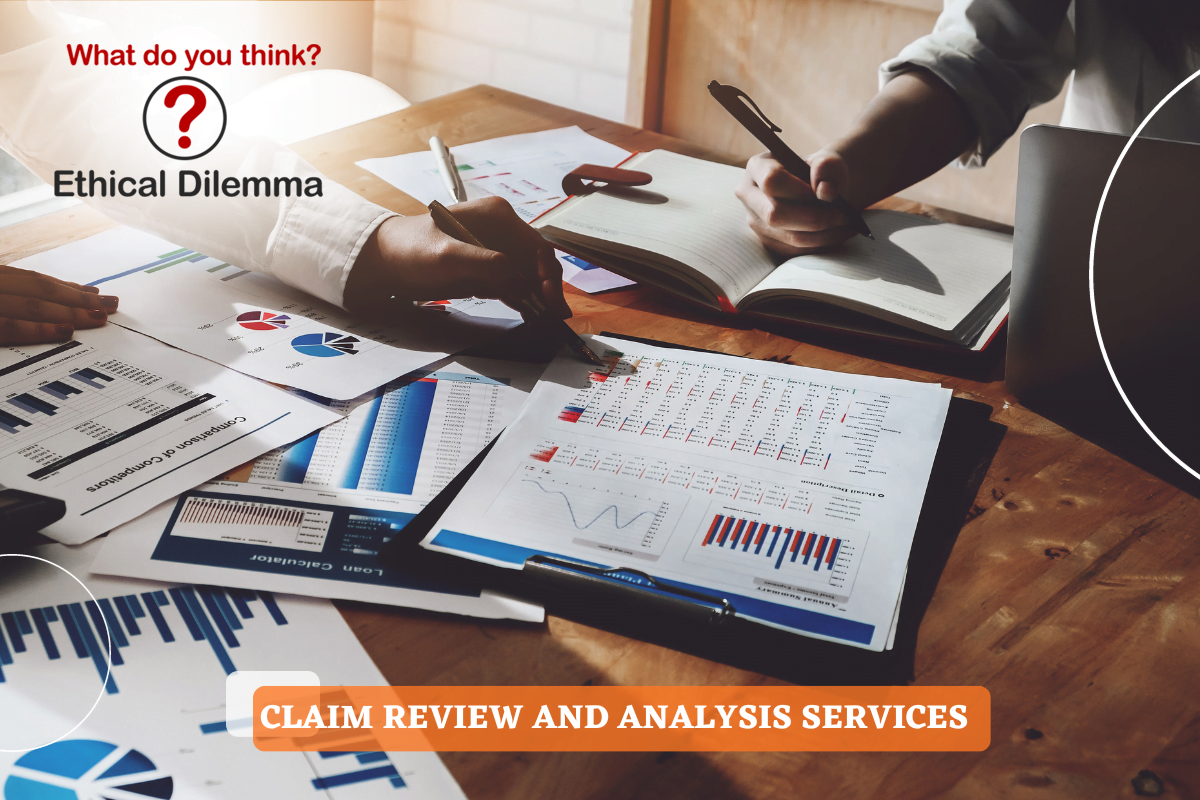
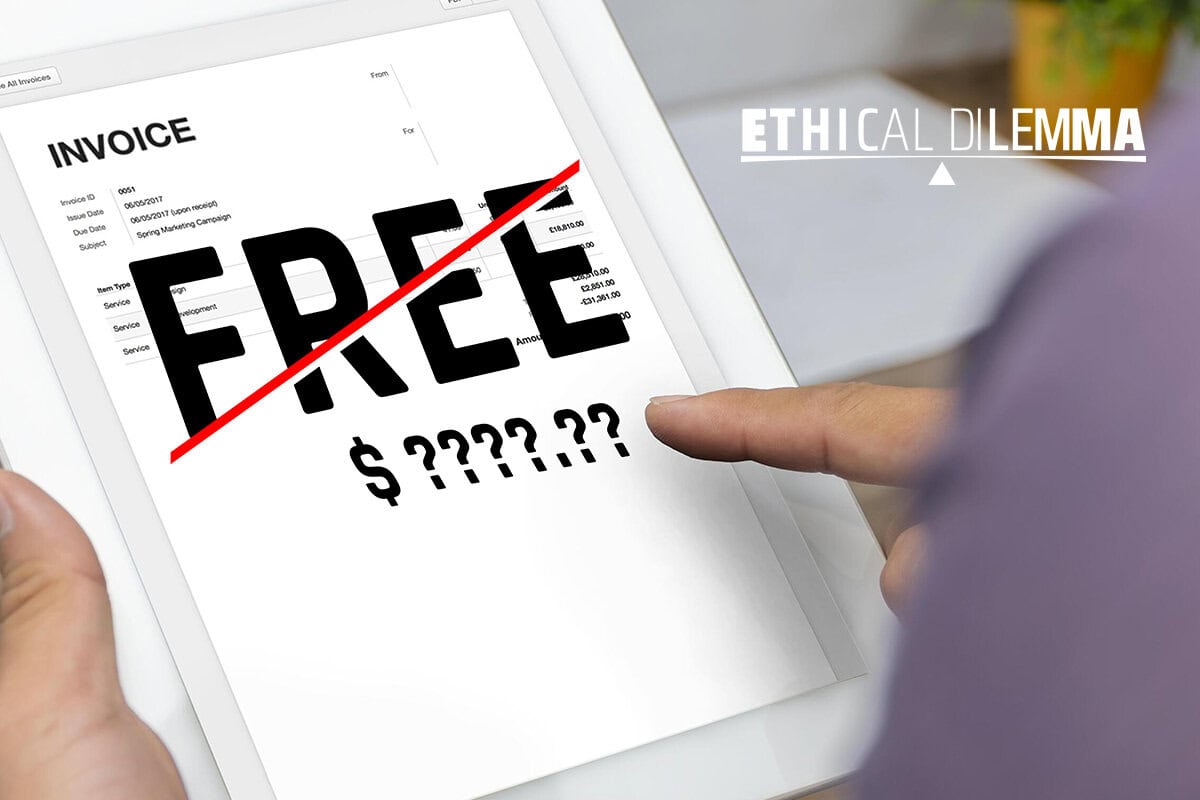
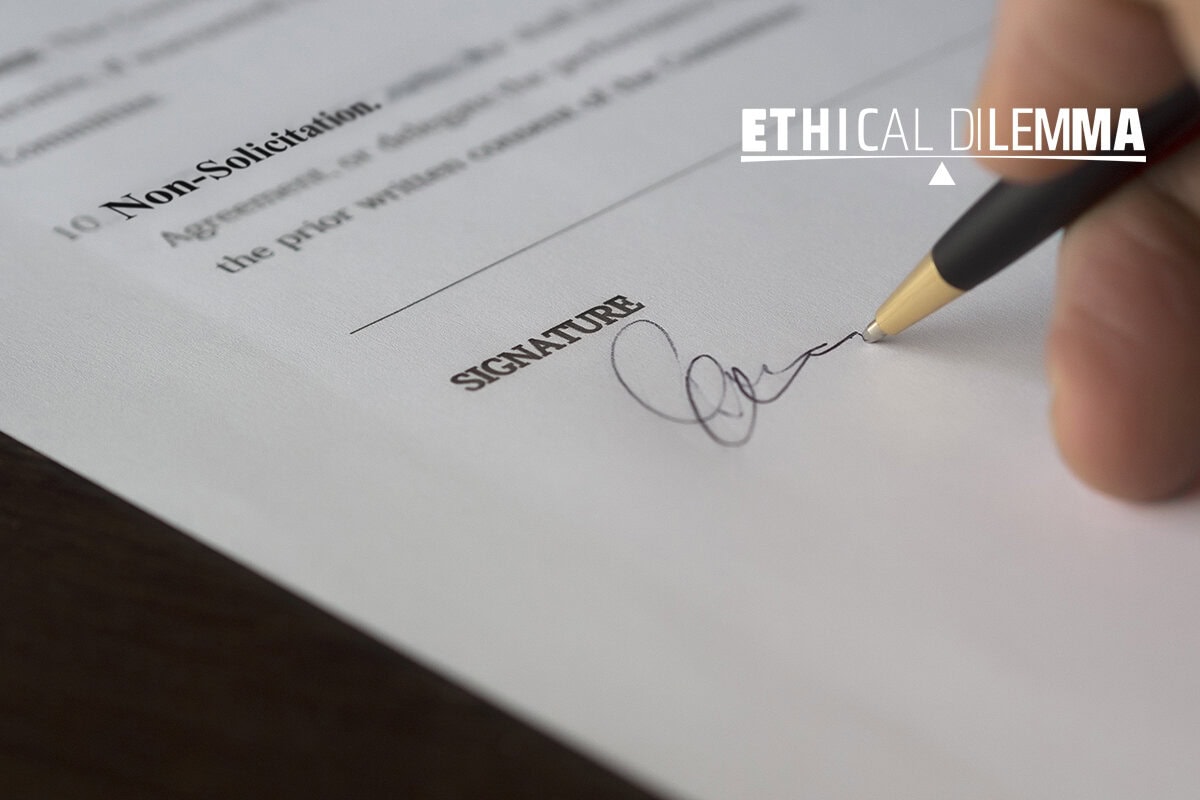
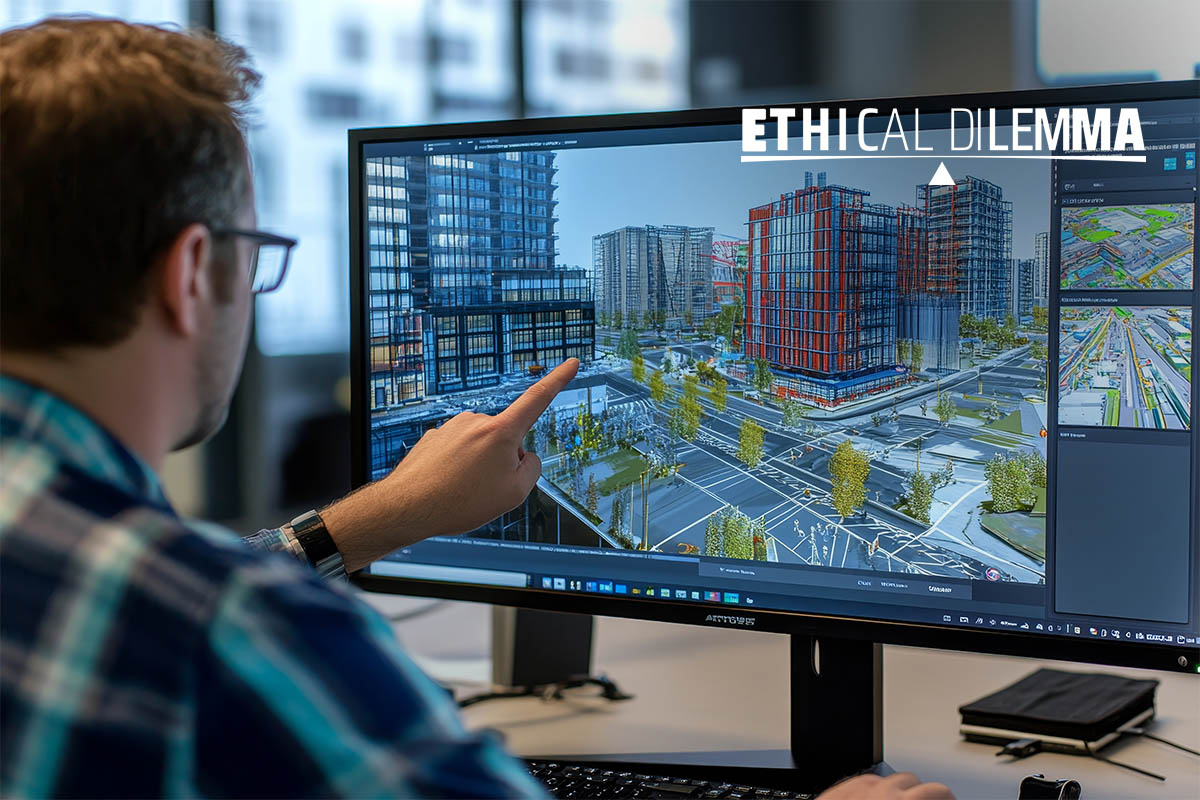



The facts in this case were not clearly presented, so i made assumptions. I assumed Mike, was working for the City during the project. I assumed this because the City had to approve of Mike and also dictated the soil testing frequency. I assumed that the contractor was required to hire Mike and was paid for Mike’s services as part of the contract. Therefore Mike is really working for the City and is being paid as a pass-thru to the contractor. The fact that Mike is working for the City on the arbitration is ethical since he was always working for the City and not the contractor.
Shouldn’t the main goal be getting to The Truth. If so, how can Mike’s actions be deemed unethical, particularly if his participation and testimony is purposefully objective?
I disagree with the board. The key is, “engineer has gained particular knowledge on behalf of a former client or employee.” Or as stated in the NSPE Code, Mike cannot “…represent an adversary interest in connection with a specific project or proceeding in which the engineer has gained particular specialized knowledge on behalf of a former client or employer.” Mike was retained to conduct compaction testing. Not only that, the compaction testing was directed by the owner. This limited scope of work does not provide Mike with a “specialized knowledge” of anything. There is no judgement, there are no decisions and there is no engineering being conducted. The only reason there is a question is because Mike has a PE Stamp. Plus, everything Mike did was documented in reports viewed by all parties. As long as those reports were truthful, there is no conflict. If they were not, Mike has other problems.
Always require a subpoena when requested to appear, so it can never come back that you voluntarily participated.
Only give the facts under questioning unless you are call as an expert witness.
Once again, this story lacks key information about how Mike was hired and what his contract said. With the City having the approval of Mike as the engineer for the project, who is his responsible or contracting party. Also, if he is proving them with the hours that he worked to provide the needed data, the City should have been able to figure out if they were ripped off.
My comment would have been in concurrence with Pat McCann’s.